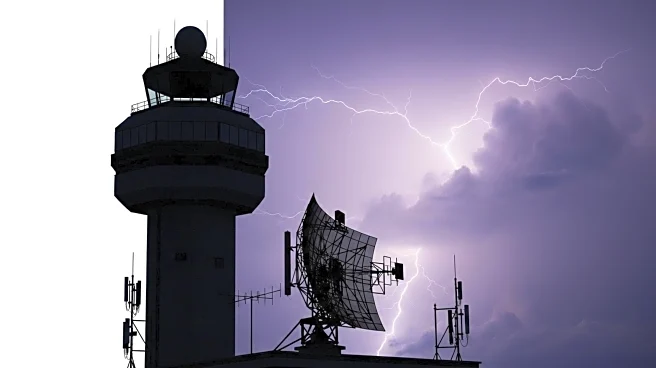What's Happening?
Collins Aerospace, a provider of check-in and boarding systems for airlines, has experienced a cyber-related disruption affecting its MUSE software at several European airports, including Heathrow, Brussels, and Berlin. This disruption has led to significant delays and cancellations of flights. The company, along with its parent company RTX, is actively working to resolve the issue and restore full functionality. The U.K.'s National Cyber Security Centre is collaborating with Collins Aerospace and relevant authorities to assess the impact of the incident. The disruption has primarily affected electronic customer check-in and baggage drop systems, which are currently being managed through manual operations.
Why It's Important?
The cyber-related disruption at Collins Aerospace highlights the vulnerability of critical infrastructure to cyberattacks, particularly in the aviation sector. This incident underscores the potential for significant operational disruptions and economic losses when key systems are compromised. Airlines and passengers are directly affected, facing delays and cancellations, which can lead to financial losses and reputational damage for the airlines involved. The incident also raises concerns about cybersecurity measures in place at major transportation hubs and the need for robust defenses against such attacks. The collaboration between Collins Aerospace, its parent company RTX, and cybersecurity agencies reflects the importance of coordinated efforts in addressing and mitigating cyber threats.
What's Next?
Collins Aerospace and RTX are expected to continue their efforts to resolve the disruption and restore normal operations. The U.K.'s National Cyber Security Centre and other relevant authorities will likely conduct investigations to determine the cause and scope of the cyberattack. Airlines and airports may implement additional security measures to prevent future incidents. Passengers are advised to check with their airlines for updates on flight schedules and potential delays. The incident may prompt a broader review of cybersecurity protocols within the aviation industry to enhance resilience against similar threats.









